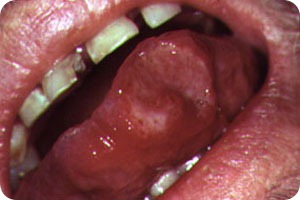Canker sores are essentially sores in the mouth that cause a great deal of pain and discomfort. They are also called oral sores or aphthous ulcers.
These sores are not cancerous and they are different from cold sores or fever blisters or sores caused by herpes virus. (1-6)
Symptoms of canker sores
There is a small ulcer or a sore within the mouth usually found:
- in the insides of the cheeks
- base of the gums
- over the palate or roof of the mouth
- over the tongue
- within the throat
There is a disruption in the mucus layer in the mouth. The sore is a small white or yellow in color and has a swollen, red area around it.
The condition may occur suddenly or may develop over a period of days. The lesions may be confined to a small area within the mouth or may be more widespread.
The condition is usually benign and resolves on its own. It does not usually cause a serious problem but may cause severe pain and discomfort.
There may be fever and swollen lymph nodes as well. Canker sores are the commonest form of mouth ulcers.
How long do canker sores last?
The pain over the sore is most intense the initial 2 to 3 days making it difficult to eat or speak.
The pain usually goes away in a week to 10 days. It can take 1 to 3 weeks for complete healing of the sore.
Triggers of canker sores
There are several triggers that lead to canker sores. For example, a wound or injury to the mouth may lead to a bacterial infection causing sores in the mouth. The wound may be caused by biting of the insides of the cheeks, lips or tongue inadvertently.
Those with a weak immune system are also at risk of canker sores.
Other triggers of canker sores include:
- hormone fluctuations
- allergic reactions
- emotional stress
- vitamin deficiencies
- menstrual periods
- tobacco use
- smoking
- alcohol consumption
They may occur with viral infections but in many cases no exact cause is determined.
Who is at risk of canker sores?
Women are more likely to get these sores than men. The cause of this is unknown. Canker sores may run in families but are not spread on contact.
Prevention of canker sores
Canker sore prevention involves good dental hygiene. Regular brushing of teeth, flossing and visits to the dentist for check-ups help prevent these oral sores.
For example, a sharp edge of a tooth that is causing regular injury and recurrent sores may be treated if detected on regular dental check-ups.
Further Reading
Last Updated: May 27, 2023